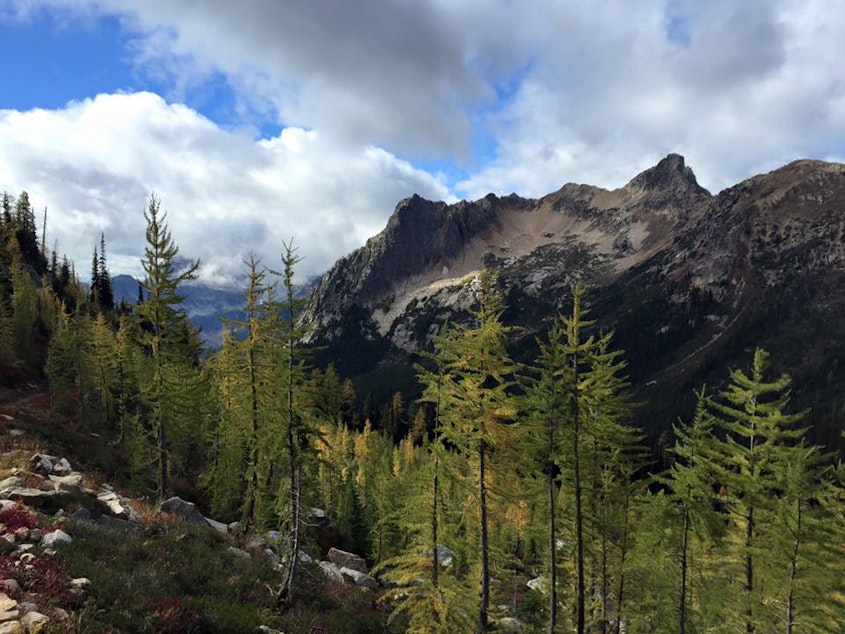The national park that almost wasn't in Washington state

The North Cascades National Park turns 50 years old this year.
It's a popular place to camp and hike now, but a new book about the park's history says it got off to a rocky start.
Lauren Danner is author of "Crown Jewel Wilderness." She told KUOW's Kim Malcolm the establishment of the North Cascades almost didn't happen at all — the Forest Service almost prevented the Park Service from studying that area. It all boiled down to an argument between the Forest Service and the Park Service over who was better equipped to manage the North Cascades.
The following interview excerpts have been edited for length and clarity.
What was the conflict essentially between these two groups?
Sponsored
The conflict essentially has to do with the founding philosophies of the two agencies. The Forest Service was founded to manage the nation's national forest in the long-term public interest. And they did that by managing for multiple uses: timber production, watershed protection, livestock raising, game habitat and recreation. But the focus was on use — sustainable, renewable use. The Park Service, in contrast, was charged with preserving monumental, scenic landscapes and providing access to those landscapes. So every time a national park was created it was carved from Forest Service land, and the Forest Service saw that as wasted land.
So, a battle for control? There wasn't enough to go around to make everybody happy?
Absolutely. The Forest Service saw the North Cascades as containing a large amount of merchantable timber that could be logged, and the Park Service saw the North Cascades as containing magnificent alpine scenery that needed to be protected.
What was the pivotal moment in the battle over this park?
I think the first pivotal moment is in 1955 when the Forest Service announces it's going to reclassify Glacier Peak for wilderness designation, and the first proposal they come out with shows a much reduced Glacier Peak wilderness that leaves out these river valleys. Conservationists find each other after that happens. So I think that's a big tipping point.
Sponsored
That whole story seems to depict a time where conservation was coming into its own, developing into what we would now call an environmental movement.
That's absolutely right. I think what makes the North Cascades story so unique and important is it is a window into the beginnings of the modern environmental movement. It's just this handful of people who kind of start communicating and think, well maybe we can make something happen here. Let's try. And they get the Sierra Club, which itself was just then becoming politicized. Then they connect with each other in Seattle and sort of form a single-purpose interest group to fight for the North Cascades.
So, the North Cascades is essentially a wilderness area. Why is that different?
We expect our national parks to offer significant visitor infrastructure. We go to national parks and we expect great lodges and campgrounds with flush toilets — one of my personal favorites. We expect parkways that take us on scenic drives through the parks. So in the North Cascades, conservationists were very torn about going for a national park because they knew that the National Park Service would want all of this recreational development. But on the other hand the Forest Service had been showing itself increasingly unwilling or unable to truly protect wilderness, so they went for national park thinking, all right, we'll see if we can kind of funnel the visitors along the road.
And it is still pretty much a pristine place because of the legislation?
Sponsored
That's one of the things I think is really important to understand about any national park, but it's particularly true in the North Cascades. The North Cascades are a political landscape. You might sit there in your car and look at them think, wow beautiful mountains. But in fact what you're looking at is a negotiated entity and the bill that created the park complex took that into account. So it's really a product of political compromise. Nobody got everything they wanted. Everyone got a little of what they wanted, and that's why I think it has withstood the test of time for such an unusual product. It truly is unique.


